Fullerton Police Chief Dan Hughes — another look (Originally posted June 9, 2014; Edited with a few additional comments on January 14, 2015 including new P.S.) BY BARRY LEVINSON
I REPORT, YOU DECIDE.-by Barry Levinson
I attended the Fullerton Republican Women’s Federated meeting on May 28, 2014. The guest speaker was our Police Chief Dan Hughes. He gave an interesting if somewhat disjointed speech. He indicated that it was good for his department to acknowledge when they do not live up to the highest standards. Yet, he then referred to activists and complained that whatever the FPD actually does, these activists are going to complain about his department.
Dan, either you want legitimate criticism or you want to complain whenever a member of the public has a legitimate beef with the FPD. Your speech certainly sent out mixed messages.
He also handed out the 2013 FPD Annual Report, which he indicated was the first one published since way back in 1967. In it I noted that for 2013, the FPD Supervisor of the Year as chosen by the Fullerton Police Association was none other than Sergeant Kevin Craig, the highest-ranking officer present during the brutal beating death of Kelly Thomas. Craig, you may recall, testified in late 2013 or January 2014 for the defense of Ramos and Cincinelli, claiming that none of the actions taken by any of his fellow officers, including himself that night were indeed against FPD policy.
Why, Dan, did you fire Ramos, Cincinelli and Wolfe, when the Fullerton Police Association’s 2013 Supervisor of the Year testified that they did nothing wrong as did your FPD training officer, Corporal Rubio? I report, you decide.
I want to hear from all those people by name (real name) who look at the picture below and tell me that those officers were not guilty of at least excessive use of force against an unarmed 135 pound man.
Those pesky activists — you know, the protestors — Dan Hughes seems intent to make darn sure that they spend some time behind bars. The city of Bell has nothing over us. After all, they just stole money, not a life!
I forgot to tell all of you, that our police chief kept on repeating one point over and over again during his presentation. That point was that Dan Hughes just does not pay any attention to the politics within Fullerton. If that were true why did his department send 6 police officers, including 2 supervisors as well as several police vehicles to Pasadena for half a day to arrest AJ Redkey for a misdemeanor failure to disperse? The only way that action makes any sense if you view their actions in the form of a political vendetta by the FPD. Where is the reform Dan?
I now have learned from Jean Thaxton’s public comments that Dan Hughes put together a police committee to review the tape of the Ramos, Cincinelli not guilty protest that took place on January 18, 2014. Based on that review, FPD filed that non-violent misdemeanor charge against peaceful protester and live streamer, AJ Redkey for failure to disperse (failure I guess to not disperse quickly enough for Dan Hughes because others have alleged that the same tape shows Mr. Redkey running from the protest area at the time the police asked the protestors to disperse). We all know that had to be the highest priority for our FPD that day. Clearly, if AJ Redkey was the most dangerous “suspect” that needed to be arrested that day 40 miles away in Pasadena, and you could afford to send 6 officers to make that arrest, then I would humbly point out that the FPD is greatly overstaffed! (Now we learn that the FPD wants to add 10 new officers to its ranks.)
By the way, it is my understanding that the most common way and probably the cheapest way to make that arrest was to call the Pasadena Police Department and ask them to make that arrest. I guess the next question is why did that simple and easy solution never cross the mind of those FPD officers?
Or maybe it was personal to you Dan Hughes, like a game of political payback! (You know that game that you desperately played on me last summer and fall, when you lead the charge to try to have me thrown into jail on baseless misdemeanor charges.) You remember Councilmember Whitaker recalling vividly at council that you stated to him that you hate Barry Levinson and then you recounted that you lead the police investigation against me.
Remember Police Chief Hughes, it was reported that those 10 arrested protestors complained that their very lives were threatened by at least one Fullerton police officer before the FPD transported them to jail. These protestors alleged that a FPD officer threatened them that when they arrived at the Orange County jail all their faces (including both men and women) would be smashed in by 12 waiting OC Sheriff Deputies. Yet when Dan Hughes was asked whether he had reviewed the DAR’s (Digital Audio Recorder’s) of those officers to investigate those extremely serious charges, our open and honest police chief remained totally silent.
P.S. It is now a full year after the arrests were made at the Kelly Thomas protest march on January 18, 2014. Yet the DAR (Digital Audio Recording) that Danny Hughes said was sent to the OC District Attorney as evidence has apparently not resulted in any official action by the DA’s office. Why? If they decided not to press charges should not the DAR have been released at that time by the FPD? If the case is still under review after an entire year one must ask the question what is causing this unexplainable delay? Did someone suggest dirty politics?
Therefore, at this time, I urge all people of good will and integrity to attend the January 20, 2015 Fullerton City Council meeting at 6:30 pm. Please demand answers from Police Chief Hughes on the below subjects he has for far too long failed to speak about.
- Demand that the January 18, 2014 DAR (Digital Audio Recording) be released to the public.
- Demand the status of that investigation of the FPD police officer for allegedly threatening great bodily harm to all the arrestees that day.
- Demand that we finally learn the name of the officer who should have replaced retired Police Officer Bill Wallis whose only task was to monitor the Fullerton Sex Offender population. No police officer dedicated solely to that task means the FPD is not doing their job properly.
- Demand that when all FPD officers wear body cameras that it must be on 100% of the time while on duty. Shutting them off should be grounds for firing any Fullerton officer. Without these mandatory rules, the cameras will not do what they are suppose to do, namely provide video evidence of actions taken by both the police and the suspects. The same lame excuses as to why DAR’s are not turned on in too many crucial situations will be used again without the above strict rules.
- Demand that Police Chief Hughes take a public stand for or against the most damaging law that keeps the public in the dark concerning complaints against Fullerton police officers and the details of police management action or inaction when police misbehavior occurs. This law is called the California Police Officer’s Bill of Rights or POBOR. Police Chief Danny Hughes do you support this law or are you against its impact, which is too keep the public in the dark about police abuse and misbehavior? I do not see how you can remain silent on the one law that is the antithesis of open, honest and transparent policing.
- Finally demand that Police Chief Hughes and those so-called leaders of the community display a little bit more love in their hearts and more integrity in their souls. The defaming comments by many in high-level positions currently or formerly in Fullerton City government needs to cease and desist immediately. By the way ladies and gentlemen, one way or the other either the laws of our land will hold them accountable or if not their maker surely will.
As Danny Hughes has been recently honored by the OC Register
as one of the most influential people in OC in large part because of his transparency (that is what Lou Ponsi* of the Register said folks), we believe he owes us nothing less than complete candor on all the above issues. I report, you decide.
- “Why he’s an influencer: Hughes has been credited for bringing new levels of transparency and trust to a department that became embattled after the 2011 death of transient Kelly Thomas at the hands of officers.”
One more comment I would like to make to all of you. This topic is personally painful to me. Why because the two finest men I have ever known were my dad and his brother! They were both career NYPD police officers. The public had a friend and an advocate for what was right and just when they were on duty. I know in my heart there are many fine FPD officers wearing that uniform. It is sad to me that they do not feel comfortable enough to speak out when they too view or hear about bad behavior by a few members of their own force.
Barry Levinson

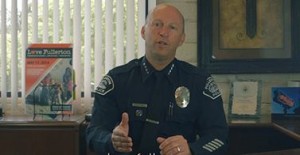
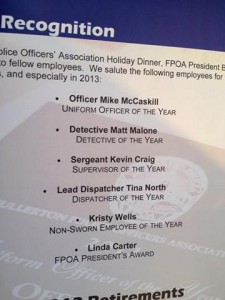


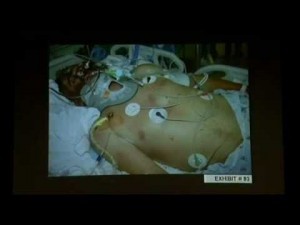

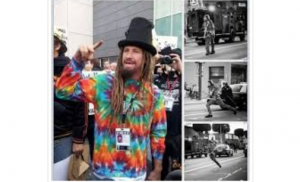




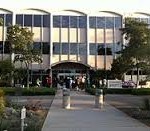


#1 by Fullerton police state on February 26, 2015 - 12:05 pm
Forced Blood Draws, DNA Collection and Biometric Scans: What Country Is This?
Guest Post by John W. Whitehead
“The Fourth Amendment was designed to stand between us and arbitrary governmental authority. For all practical purposes, that shield has been shattered, leaving our liberty and personal integrity subject to the whim of every cop on the beat, trooper on the highway and jail official. The framers would be appalled.”—Herman Schwartz, The Nation
Our freedoms—especially the Fourth Amendment—are being choked out by a prevailing view among government bureaucrats that they have the right to search, seize, strip, scan, spy on, probe, pat down, taser, and arrest any individual at any time and for the slightest provocation.
Forced cavity searches, forced colonoscopies, forced blood draws, forced breath-alcohol tests, forced DNA extractions, forced eye scans, forced inclusion in biometric databases—these are just a few ways in which Americans are being forced to accept that we have no control over what happens to our bodies during an encounter with government officials.
Worse, on a daily basis, Americans are being made to relinquish the most intimate details of who we are—our biological makeup, our genetic blueprints, and our biometrics (facial characteristics and structure, fingerprints, iris scans, etc.)—in order to clear the nearly insurmountable hurdle that increasingly defines life in the United States: we are all guilty until proven innocent.
Thus far, the courts have done little to preserve our Fourth Amendment rights, let alone what shreds of bodily integrity remain to us.
For example, David Eckert was forced to undergo an anal cavity search, three enemas, and a colonoscopy after allegedly failing to yield to a stop sign at a Wal-Mart parking lot. Cops justified the searches on the grounds that they suspected Eckert was carrying drugs because his “posture [was] erect” and “he kept his legs together.” No drugs were found. During a routine traffic stop, Leila Tarantino was subjected to two roadside strip searches in plain view of passing traffic, during which a female officer “forcibly removed” a tampon from Tarantino. Nothing illegal was found. Nevertheless, such searches have been sanctioned by the courts, especially if accompanied by a search warrant (which is easily procured), as justified in the government’s pursuit of drugs and weapons.
Close to 600 motorists leaving Penn State University one Friday night were stopped by police and, without their knowledge or consent, subjected to a breathalyzer test using flashlights that can detect the presence of alcohol on a person’s breath. These passive alcohol sensors are being hailed as a new weapon in the fight against DUIs. However, because they cannot be used as the basis for arrest, breathalyzer tests are still required. And for those who refuse to submit to a breathalyzer, there are forced blood draws. One such person is Michael Chorosky, who was surrounded by police, strapped to a gurney and then had his blood forcibly drawn after refusing to submit to a breathalyzer test. “What country is this? What country is this?” cried Chorosky during the forced blood draw. Thirty states presently allow police to do forced blood draws on drivers as part of a nationwide “No Refusal” initiative funded by the federal government.
Not even court rulings declaring such practices to be unconstitutional in the absence of a warrant have slowed down the process. Now the police simply keep a magistrate on call to rubber stamp the procedure over the phone. That’s what is called an end-run around the law, and we’re seeing more and more of these take place under the rubric of “safety.”
The National Highway Safety Administration, the same government agency that funds the “No Refusal” DUI checkpoints and forcible blood draws, is also funding nationwide roadblocks aimed at getting drivers to “voluntarily” provide police with DNA derived from saliva and blood samples, reportedly to study inebriation patterns. When faced with a request for a DNA sample by police during a mandatory roadblock, most participants understandably fail to appreciate the “voluntary” nature of such a request. Unfortunately, in at least 28 states, there’s nothing voluntary about having one’s DNA collected by police in instances where you’ve been arrested, whether or not you’re actually convicted of a crime. The remaining states collect DNA on conviction. All of this DNA data is being fed to the federal government. Indeed, the United States has the largest DNA database in the world, CODIS, which is managed by the FBI and is growing at an alarming rate.
Airline passengers, already subjected to virtual strip searches, are now being scrutinized even more closely, with the Customs and Border Protection agency tasking airport officials with monitoring the bowel movements of passengers suspected of ingesting drugs. They even have a special hi-tech toilet designed to filter through a person’s fecal waste.
Iris scans, an essential part of the U.S. military’s boots-on-the-ground approach to keeping track of civilians in Iraq and Afghanistan, are becoming a de facto method of building the government’s already mammoth biometrics database. Funded by the Dept. of Justice, along with other federal agencies, the iris scan technology is being incorporated into police precincts, jails, immigration checkpoints, airports and even schools. School officials—from elementary to college—have begun using iris scans in place of traditional ID cards. As for parents wanting to pick their kids up from school, they have to first submit to an iris scan.
As for those endless pictures everyone so cheerfully uploads to Facebook (which has the largest facial recognition database in the world) or anywhere else on the internet, they’re all being accessed by the police, filtered with facial recognition software, uploaded into the government’s mammoth biometrics database and cross-checked against its criminal files. With good reason, civil libertarians fear these databases could “someday be used for monitoring political rallies, sporting events or even busy downtown areas.”
As these police practices and data collections become more widespread and routine, there will be no one who is spared from the indignity of DNA sampling, blood draws, and roadside strip and/or rectal or vaginal searches, whether or not they’ve done anything wrong. We’re little more than economic units, branded like cattle, marked for easy identification, and then assured that it’s all for our “benefit,” to weed us out from the “real” criminals, and help the police keep our communities “safe” and secure.
What a bunch of hokum. As I point out in my book A Government of Wolves: The Emerging American Police State, these databases, forced extractions and searches are not for our benefit. They will not keep us safe. What they will do is keep us mapped, trapped, targeted and controlled.
Moreover, what if you don’t want to be forced to trust the government with your most intimate information? What if you don’t trust the government to look out for your best interests in the first place? How do you protect yourself against having your blood forcibly drawn, your DNA extracted, your biometrics scanned and the most intimate details of who you are—your biological footprint—uploaded into a government database?
What recourse do you have when that information, taken against your will, is shared, stolen, sold or compromised, as it inevitably will be in this age of hackers? We know that databases can be compromised. We’ve seen it happen to databases kept by health care companies, motor vehicle agencies, financial institutions, retailers and intelligence agencies such as the NSA. In fact, 2014 was dubbed the Year of the Hack in light of the fact that over a billion personal data records were breached, leaving those unlucky enough to have their data stolen vulnerable to identity theft, credit card fraud and all manner of criminal activities carried out in their names.
Banks now offer services —for a fee—to help you in the event that your credit card information is compromised and stolen. You can also pay for services to protect against identity theft in the likely event that your social security information is compromised and misused. But what happens when your DNA profile is compromised? And how do you defend yourself against charges of criminal wrongdoing in the face of erroneous technological evidence—DNA, biometrics, etc., are not infallible—that place you at the scene of a crime you didn’t commit?
“Identity theft could lead to the opening of new fraudulent credit accounts, creating false identities for criminal enterprises, or a host of other serious crimes,” said Jason Hart, vice president of cloud services, identity and data protection at the digital security company Gemalto. “As data breaches become more personal, we’re starting to see that the universe of risk exposure for the average person is expanding.”
It’s not just yourself you have to worry about, either. It’s also anyone related to you—who can be connected by DNA. These genetic fingerprints, as they’re called, do more than just single out a person. They also show who you’re related to and how. As the Associated Press reports, “DNA samples that can help solve robberies and murders could also, in theory, be used to track down our relatives, scan us for susceptibility to disease, or monitor our movements.”
Capitalizing on this, police in California, Colorado, Virginia and Texas use DNA found at crime scenes to identify and target family members for possible clues to a suspect’s whereabouts. Who will protect your family from being singled out for “special treatment” simply because they’re related to you? As biomedical researcher Yaniv Erlich warns, “If it’s not regulated and the police can do whatever they want … they can use your DNA to infer things about your health, your ancestry, whether your kids are your kids.”
These are just a few of the questions we should be asking before these technologies and programs become too entrenched and irreversible.
While the Fourth Amendment was created to prevent government officials from searching an individual’s person or property without a warrant and probable cause—evidence that some kind of criminal activity was afoot—the founders could scarcely have imagined a world in which we needed protection against widespread government breaches of our privacy on a cellular level. Yet that’s exactly what we are lacking.
Once again, technology has outdistanced both our understanding of it and our ability to adequately manage the consequences of unleashing it on an unsuspecting populace. As for all of those databases being sold to you for your safety and benefit, whether or not they’re actually effective in catching criminals, you can be assured that they will definitely be snatching up innocent citizens, as well.
In the end, what all of this amounts to is a carefully crafted campaign designed to give the government access to and control over what it really wants: you.
https://www.theburningplatform.com/2015/02/25/forced-blood-draws-dna-collection-and-biometric-scans-what-country-is-this/